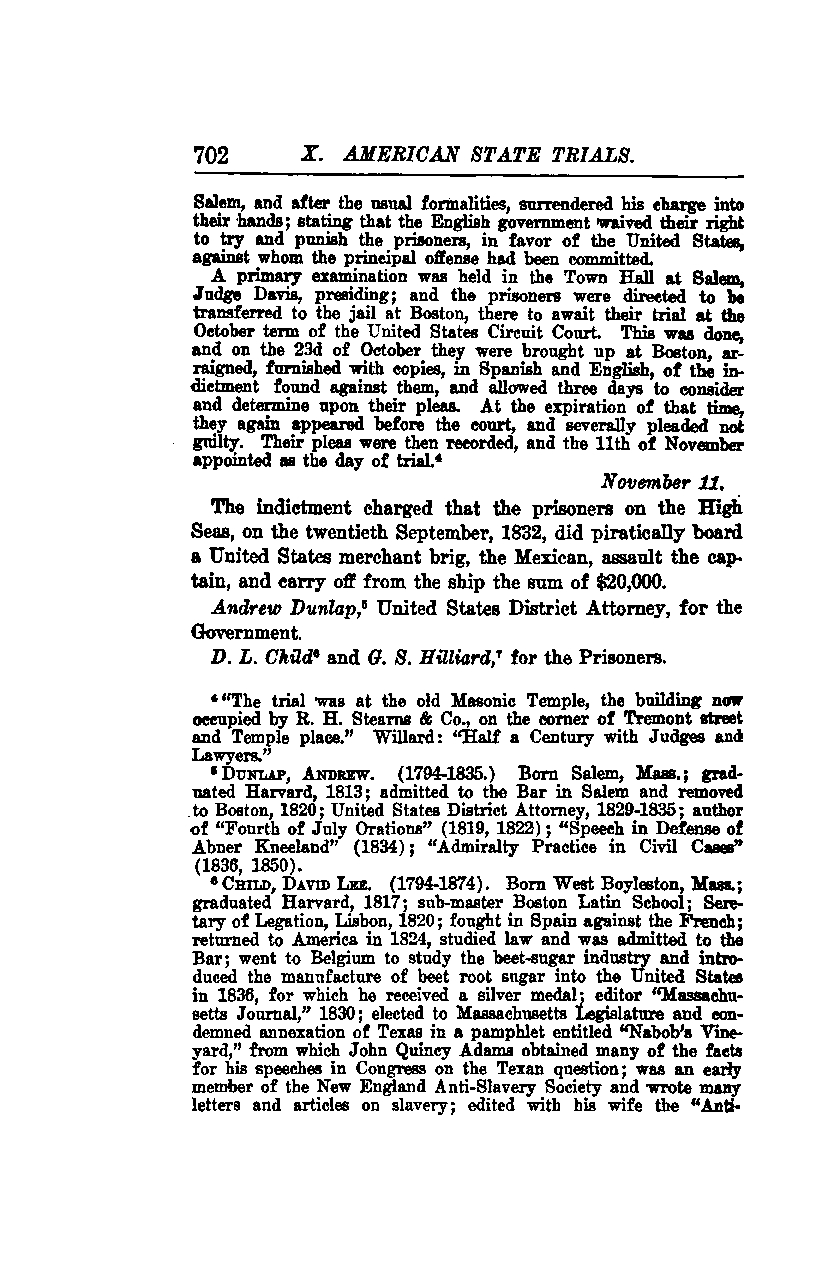
Here is the translated text as follows:
In Salem, after the usual formalities, the charge was surrendered into their hands, with the English government waiving their right to try and punish the prisoners in favor of the United States, against whom the principal offense had been committed.
A primary examination was held in the Town Hall at Salem, with Judge Davis presiding. The prisoners were directed to be transferred to the jail in Boston, where they would await their trial at the October term of the United States Circuit Court. This was done, and on the 23rd of October, they were brought up in Boston, arraigned, furnished with copies of the indictment found against them in both Spanish and English, and allowed three days to consider and determine their pleas. At the expiration of that time, they again appeared before the court and each pleaded not guilty. Their pleas were then recorded, and the 11th of November was appointed as the day of trial.
On November 11th, the indictment charged that the prisoners, on the high seas on the twentieth of September, 1832, did piratically board a United States merchant brig, the Mexican, assault the captain, and carry off from the ship the sum of $20,000.
Andrew Dunlap, United States District Attorney, represented the Government. D. L. Child and G. S. Hilliard represented the prisoners.
The trial was held at the old Masonic Temple, the building now occupied by R. H. Stearns & Co., on the corner of Tremont Street and Temple Place. (Willard: "Half a Century with Judges and Lawyers.")
Andrew Dunlap (1794-1835) was born in Salem, Massachusetts. He graduated from Harvard in 1813, was admitted to the Bar in Salem, and later moved to Boston in 1820. He served as the United States District Attorney from 1820 to 1835 and authored works such as "Fourth of July Orations" (1819, 1822), "Speech in Defense of Abner Kneeland" (1834), and "Admiralty Practice in Civil Cases" (1836, 1850).
David Lee Child (1794-1874) was born in West Boylston, Massachusetts. He graduated from Harvard in 1817, served as a sub-master at Boston Latin School, and was Secretary of Legation in Lisbon in 1820. He fought in Spain against the French, returned to America in 1824, studied law, and was admitted to the Bar. Child went to Belgium to study the beet-sugar industry and introduced the manufacture of beetroot sugar into the United States in 1836, for which he received a silver medal. He was the editor of the "Massachusetts Journal" in 1890, elected to the Massachusetts Legislature, and condemned the annexation of Texas in a pamphlet entitled "Nabob’s Vineyard," from which John Quincy Adams obtained many facts for his speeches in Congress on the Texan question. He was an early member of the New England Anti-Slavery Society and wrote many letters and articles on slavery, editing with his wife the "Anti-Slavery Standard."
---